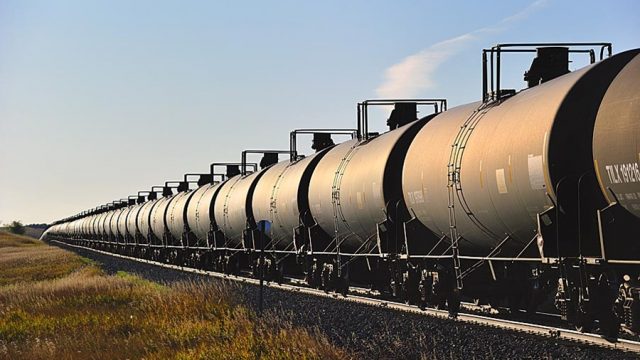Lynn Helms: State Regulators Working To Make Oil By Rail Shipments Safe

A recent train derailment in West Virginia has generated some inquiries for the North Dakota Department of Mineral Resources regarding the safety of transporting Bakken crude oil by rail.
On Dec. 9, the Industrial Commission unanimously approved an order that requires all oil producers in North Dakota to install and use oil-conditioning equipment to significantly reduce the vapor pressure of Bakken crude oil.
The Industrial Commission’s order is based on sound science and represents an important step in our ongoing work to make sure that the transportation of oil is as safe as possible.
[mks_pullquote align=”right” width=”300″ size=”24″ bg_color=”#000000″ txt_color=”#ffffff”]North Dakota’s vapor pressure standard for oil is more conservative than the national standard developed by the American National Standards Institute and the American Petroleum Institute, which established that crude oil is stable at a vapor pressure of 14.7 psi.[/mks_pullquote]
The oil conditioning order includes strict parameters for temperatures and pressures under which the equipment must operate to ensure that light hydrocarbons are removed before oil is shipped to market. The order brings every barrel of North Dakota Bakken crude oil to within a set standard, requiring oil to be conditioned so that its vapor pressure is no greater than 13.7 pounds per square inch before shipment.
North Dakota’s vapor pressure standard for oil is more conservative than the national standard developed by the American National Standards Institute and the American Petroleum Institute, which established that crude oil is stable at a vapor pressure of 14.7 psi.
Most oil producers in North Dakota have already begun to install the equipment necessary to meet the order’s final deadline of April 1.
State officials maintain that oil conditioning in itself is not the complete solution. Gov. Jack Dalrymple and the Public Service Commission have proposed establishing a state-run railroad safety program as well as a pipeline integrity program that would complement federal oversight in North Dakota.
At the same time, state officials continue to advocate for the federal government to issue new safety standards for the construction of railroad tank cars, also to improve the safety of shipping flammable products by rail.
Pipelines offer the safest mode of oil shipment, and I encourage local, state and federal officials to support the development of critical pipeline projects.




